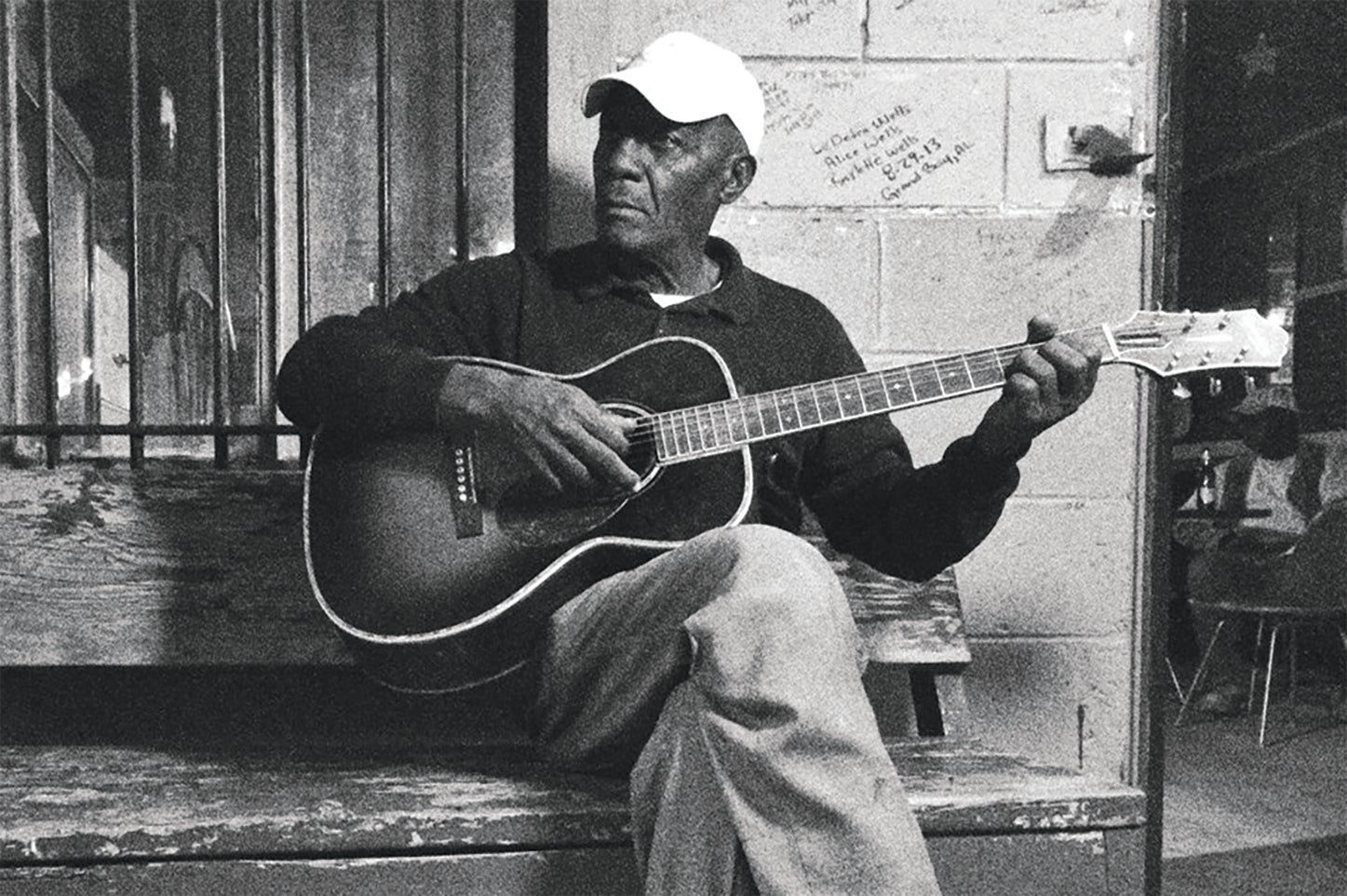Jimmy ‘Duck’ Holmes set for solo performance then will join The Thacker Mountain Radio Hour at Double Decker
Published 3:22 pm Thursday, April 27, 2017

- Blues artist Jimmy ‘Duck’ Holmes is set to perform Friday, April 28, 2017 at 6 p.m. and will be followed by his appearance on The Thacker Mountain Radio Hour at 7 p.m. Both performances are free and will take place on the North Lamar stage. (Photo/Jimmy Holmes/Facebook)
By Jim Dees
When Dick Waterman, who spent 30 years managing blues artists such as Bonnie Raitt, Junior Wells and Son House, first heard guitarist/singer Jimmy “Duck” Holmes play live, he shuddered and moved toward the music. “It was eerie and strange,” Waterman said. “He was absolutely profound in the way he played.” So profound that Waterman came out of retirement to manage Holmes.
This year’s Double Decker audience can hear for themselves this Friday, April 28 when Holmes plays a solo set at 6 p.m. followed by his appearance on The Thacker Mountain Radio Hour at 7 p.m. Both performances are free and will take place on the North Lamar stage. Lawn chairs are encouraged. The Thacker hour will be broadcast live on WUMS (92.1FM).
Holmes’s unique guitar playing is called “Bentonia style” referring to his hometown of Bentonia, MS (pop. 440), 34 miles north of Jackson in Yazoo County. Skip James (1902-1969) put the town on the map when he exploded on the blues scene at the Newport Blues Festival in 1964 and defined his singing and playing as “Bentonia style.” Holmes says his playing evolved over many years.
“I didn’t have intentions of playing in public,” he told Mississippi Public Broadcasting. “I was just messing around with guys down there who pretty much founded that music in the early 1900s, guys like Jack Owens, Skip James and Jacob Stuckey. I guess I was in my late teens or early 20s when those guys started coming around. I guess it was just meant to be.”
Holmes told the interviewer that, “What makes the Bentonia sound distinct is how you tune the G string, that’s where the weird sound comes from. Jack Owens and Henry Stuckey called it ‘crossnote’ which is really not a musical term. The guitar has to sound like you feel.”
Musicologists suggest it is actually the E-minor and D-minor tunings that create the sound. Henry Stuckey is thought to have developed the style after meeting some British soldiers from Trinidad during World War I. Stuckey brought the tuning back to Bentonia. Vocally, the sound is noted for high falsetto singing and themes shrouded with devil imagery and as one writer put it, “hard times made harder.”
“Jack Owens told me he sang up high, falsetto-style, so he could be heard over the crowd at house parties before they had microphones and amplifiers,” Holmes recalled.
Holmes worked for years as an educator with the Yazoo County school system and in 1970 took over his parents’ business, the Blue Front Café which is still in operation in Bentonia. In its hey-day, from the 1940-60s, the café served as a community center for dozens of farmers and field hands in the area. On weekends the café offered a barber service, shoe shine, laundromat with ironing plus moonshine whiskey, cold beer, gambling and live music. In short, everything you’d need for a Saturday night.
Jack Owens began hanging out at the Blue Front in his later years (he lived to be 93). Holmes recalls the aging bluesman insisted that Holmes learn the intricate guitar style.
“Jack didn’t really know the name of the chords,” Holmes told MPB. “He’d just tell me to watch his hands. I had to practice. It’s not something you pick up overnight.”
Holmes obviously picked it up. He has released eight albums, including his latest, “It Is What It Is” (Blue Front Records) and performs at festivals and clubs all over the U.S. and Europe.
Dick Waterman is the living link between Skip James, who he managed, and now, Jimmy “Duck” Holmes. Waterman compares first hearing Holmes to the day that Skip James re-emerged from a decades-long break from professional music.
“Skip had vanished,” Waterman said. “Recorded a few sides for Paramount in 1931 and then just vanished. Worked on the railroad, became a preacher, and was finally found in Tunica. He played D.C. and then on to the Newport Folk Festival in July of 1964.” Waterman was there photographing the event.
“No one had seen or heard his distinctive sound in 33 years. He threw his head back and in that high falsetto voice sang out, ‘I’d rather be the devil than to be that woman’s man…’ It sucked the air out of the crowd.” James went on to have late-life success in music that had eluded him all those years. Perhaps the same is in store for Holmes.
“Jimmy’s getting good press and he has two new albums in the can,” Waterman said. “I’m trying not to rush too much product out there. I’m just trying to enjoy his musicianship for what it is.”
In a major way, Holmes was recently immortalized in the blues world. In March of this year, the state of Mississippi unveiled its official Bicentennial stamp. The stamp is a photograph by Lou Bopp that depicts a blues man’s hands playing a guitar. The model: Jimmy “Duck” Holmes.
“They call it the Mississippi stamp, but I like to think of it as the ‘Duck Stamp,’” Holmes said.





